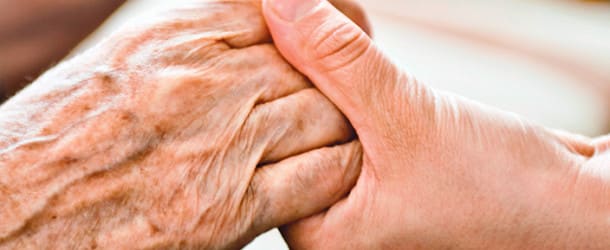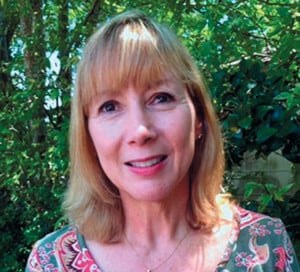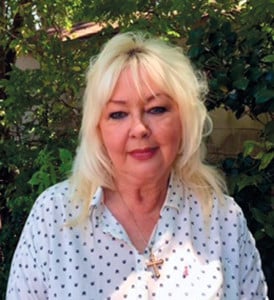What Makes A Person Volunteer For Hospice?
By Brad Goins
Many people are mystified by those who volunteer to work in hospice. For these mystified souls, the room that holds the death bed is a frightening, perhaps even terrifying, place. They don’t understand how another person could go into it willingly — even joyfully.
Just was is it about the hospice setting that so many find so disturbing?
“The unknown is what’s scariest about it,” says Helene Massey, volunteer coordinator at Heart of Hospice.
Heart of Hospice volunteer Wanda Alexander concurs: “People are afraid they won’t know how to handle it.”
A 20-hour training program prepares new volunteers at Heart of Hospice to be able to deal with the situations they’re likely to encounter in hospice. After training, “volunteers will know the protocol,” says Massey.
But for those who are still so intimidated by the hospice setting that they want to avoid it altogether, there are plenty of volunteer opportunities in the hospice office. For instance, they can handle phones. Some can even build a close long-distance relationship with patients by making the regular Thursday “tuck-in calls” — calls in which the phoner makes sure the patient has all the supplies and medicines he or she will need over the weekend.
Those who want to make a gradual transition to in-person visits can do that by undertaking various tasks in the office. Listening to office phone calls is an especially good way to grow accustomed to the culture of the hospice.
Those who do want to volunteer to work with the dying should know that the volunteer coordinator will not assign extreme or especially demanding cases to beginners.
Alexander counters the common notion of visitation of the dying by saying that the work is not at all intimidating. “It’s really easy,” she says. “I visit with people. They tell me stories of their life. If they don’t want to talk, I can just be present.
“Sitting with someone for two hours a week is not hard,” says Alexander. One of the benefits of this sitting is that it enables the hospice volunteer to perform one of her most important functions — to provide relief to the primary caregiver for the patient.
Those who are working a full-time job and also caring for a dying loved one are often worn to a frazzle. Two hours of off-time can be a tremendous relief.
Exceptional Rewards
There can be rich rewards in addition to those that come from hearing interesting stories from patients. Patients who get to know volunteers often confide in them, telling them things they hesitate to tell family members. A patient might, for example, hint that he’d like a visit from a chaplain — something he’d find difficult or impossible to convey to relatives.
Volunteer Carolyn Rashall once “helped to plan a memorial service for a patient who was survived by only one family member who lived out of state and asked me to help.”
The confidences shared with a volunteer can be less dramatic — but still moving and important. A patient may tell a volunteer he’d like a pet companion. One of Rashall’s patients is a 102-year-old woman who loves fast food. She recently asked Rashall to do her the favor of delivering a Hersey’s bar with almonds.
Alexander feels that with the training they get, volunteers will be able to handle the situations that arise. But, of course, they are offering comfort to the dying. Even a patient who seems lucid and relatively strong can feel an unexpected burst of debilitating pain or take a sudden turn for the worse.
“Part of hospice is controlling symptoms,” says Alexander. If a patient reported a sudden, intense pain, the volunteer would know and follow the protocol. A nurse would be contacted and quickly dispatched to the patient.
“It’s A Joy”
“It’s a joy to help someone and be there at the end of their life,” says Rashall. “It is an honor and a privilege to be a part of someone’s life at this time.
“I don’t think about sadness when I volunteer; I think about the joy I can bring to them …” To be present at the administration of the last rites, is, she says, “a blessing.”
Massey also finds there is something joyful about being an observer of the process of dying. “It’s no different from a baby being born. We were born with a spirit. We rejoice when a baby’s born. At the time of death [it’s a similar situation]. It’s the cycle of life.”
She tells the story of a close friend who held the hand of her father as he died. Her friend related that her father “just stopped breathing. It was so special; so spiritual.” The friend told her, “I felt so privileged. It was so peaceful.”
Massey says, “there was such respectfulness and peacefulness” in the situation.
“It’s Something That’s In Your Heart”
While it’s clear that training and experience can prepare a volunteer for both the extreme and the unexpected, there’s no denying that personality factors are important and can play a crucial role in the volunteer’s ability to communicate with and assist the patient in a comforting, helpful manner.
After all, many people would never consider volunteering in a hospice in the first place — not under any circumstances. Those who eventually find satisfaction in the calling do have particular inclinations.
“It’s something you have a passion for,” says Massey. “It’s something that’s in your heart.”
If you’d like to learn about the volunteer options at Heart of Hospice, visit the operation’s site at heartofhospice.net; or contact Helene Massey at 855-5154 or hmassey@heartofhospice.net.



















Comments are closed.